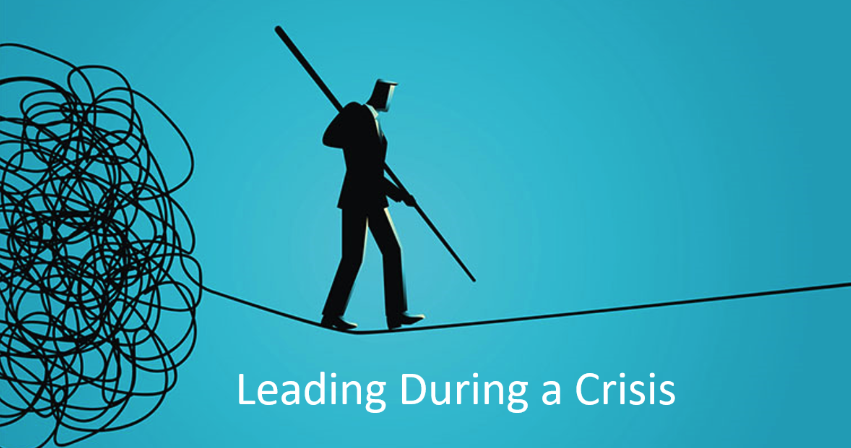TL;DR
- Stay calm and composed using mindfulness techniques to think clearly and make rational decisions.
- Gather accurate information from credible sources to assess the situation and guide decision-making.
- Develop a crisis management plan with clear objectives, roles, communication strategies, and risk mitigation steps.
- Take decisive and timely action, remaining flexible to adapt to evolving circumstances.
- Prioritize self-care and seek support to maintain emotional and mental well-being during the crisis.
In today’s fast-paced and unpredictable world, crises can arise in various forms and at any given moment. Whether it’s a personal setback, a professional challenge, or a global disaster, our ability to handle crises effectively can make a significant difference in the outcome. While no one can predict or prevent every crisis, there are strategies and techniques that professionals employ to navigate these difficult situations like a pro. Today, we will explore five essential tips that will help you handle a crisis with composure, resilience, and effectiveness. By adopting these tips, you’ll be better equipped to navigate the stormy seas of uncertainty and emerge stronger on the other side.

Stay Calm and Composed
The first and most crucial tip in handling a crisis like a pro is to remain calm and composed. It’s natural for panic and anxiety to set in when faced with a crisis, but reacting impulsively can often exacerbate the situation. By staying calm, you can think more clearly, make rational decisions, and effectively communicate with others involved.
To maintain your composure, consider employing mindfulness techniques such as deep breathing, meditation, or visualization. These practices can help ground you in the present moment and reduce stress levels. Additionally, remind yourself that crises are temporary and that you possess the skills and resources to overcome them.
Gather Information and Assess the Situation
When faced with a crisis, it’s crucial to gather as much information as possible to gain a comprehensive understanding of the situation. Accurate and timely information can provide you with valuable insights, enabling you to make informed decisions.
Identify credible sources of information, such as official reports, experts in the field, or reputable news outlets. Evaluate the information critically, considering the source’s credibility and potential biases. By having a clear understanding of the crisis, you can assess the potential risks, determine the appropriate course of action, and communicate effectively with stakeholders.
Develop a Crisis Management Plan
Once you have assessed the situation, it’s essential to develop a comprehensive crisis management plan. This plan should outline the steps and strategies you will employ to address the crisis effectively. While each crisis is unique, a well-designed plan typically includes the following elements:
- Clearly defined objectives: Establish specific and measurable goals that you aim to achieve during the crisis.
- Roles and responsibilities: Clearly assign roles and responsibilities to individuals or teams involved in managing the crisis. This ensures effective coordination and accountability.
- Communication strategy: Develop a robust communication plan that outlines how you will disseminate information to relevant parties, including stakeholders, employees, or the general public. Clear and transparent communication helps build trust and reassures those affected by the crisis.
- Resource allocation: Assess the resources needed to manage the crisis effectively, including personnel, finances, technology, and external support. Allocate resources strategically to ensure their optimal utilization.
- Risk mitigation: Identify potential risks and develop strategies to mitigate them. Anticipate challenges and plan contingencies to address unforeseen circumstances that may arise during the crisis.
Take Decisive Action
In the face of a crisis, it is imperative to take decisive action promptly. Procrastination or indecisiveness can worsen the situation, allowing it to escalate further. Consider the information gathered, consult with experts or colleagues, and make informed decisions promptly.
During this process, it’s crucial to remain flexible and adaptable. Circumstances may change rapidly during a crisis, and your actions should reflect the evolving situation. Be prepared to adjust your strategies and plans accordingly while keeping the overarching objectives in mind.
Prioritize Self-Care and Support
Managing a crisis can be mentally and emotionally exhausting. It is essential to prioritize self-care and seek support during these challenging times. Neglecting your well-being can impair your ability to handle the crisis effectively.
Engage in activities that help you relax and rejuvenate, such as exercise, spending time with loved ones, or pursuing hobbies. Practice self-compassion and acknowledge that you are doing your best in a difficult situation. Additionally, seek support from trusted colleagues, mentors, or mental health professionals who can provide guidance and assistance.
Conclusion
Handling a crisis like a pro requires a combination of skills, mindset, and preparedness. By staying calm and composed, gathering information, developing a crisis management plan, taking decisive action, and prioritizing self-care, you can navigate the stormy waters of a crisis effectively. Remember, crises present an opportunity for growth and learning, and with the right approach, you can emerge stronger and more resilient than before. Embrace these essential tips, and you’ll be well on your way to becoming a master at handling crises like a pro.
Resources on Crisis Leadership
Here is a link to Crisis Leadership resource books on Amazon!


